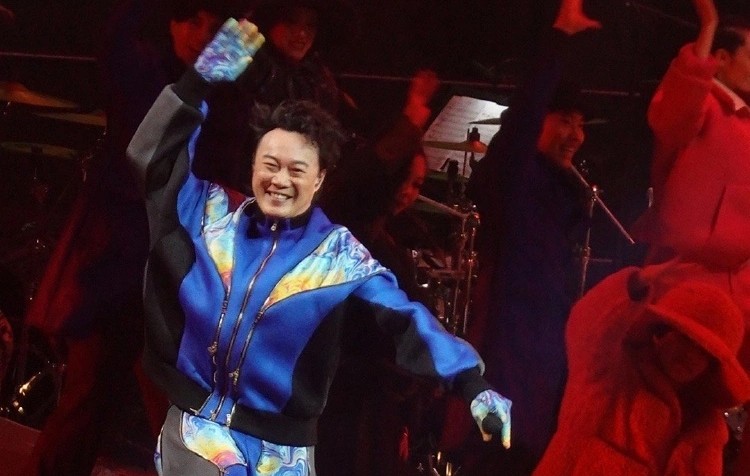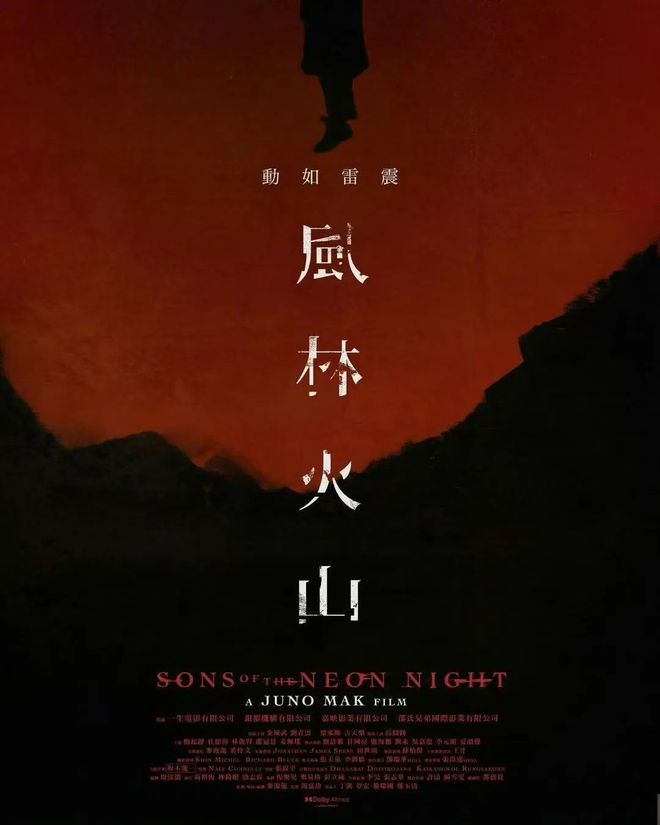China Media and Entertainment Weekly News Bulletin – ISSUE 45 Week of 7 April 2025
(1) Coldplay Starts Hong Kong Concert Series at Kai Tak Sports Park on a High Note
Coldplay’s four-night concert series at Hong Kong’s Kai Tak Sports Park kicked off with an electrifying performance, marking the venue’s first major music event.
(2) Hong Kong’s Leader Promises “Any Possible Help” to Influencers after IShowSpeed Visit
Hong Kong’s Chief Executive John Lee pledges support for social media influencers to promote the city, following YouTube star IShowSpeed’s visit.
(3) “Minecraft Movie” Tops China Box Office, Surpassing “Ne Zha 2”
“Minecraft Movie” debuted at the top of the China box office, surpassing the long-reigning “Ne Zha 2” and contributing to a strong recovery in the film market.
(4) China Slashes US Film Screenings in Retaliation for Trump’s Tariffs
China will reduce imports of US films, citing Trump’s escalated tariffs and declining audience interest, as domestic blockbusters overshadow Hollywood’s waning dominance in the world’s second-largest movie market.
(5) Daniel Wu Criticizes Trump’s Tariff Policy with Bathroom Humor
Daniel Wu humorously criticized Trump’s tariff policy using a bathroom sign metaphor, sparking widespread fan reactions on social media.
(6) Eason Chan Delights Fans with Impromptu Performance in Chongqing
Eason Chan delighted cruise passengers in Chongqing with an impromptu performance, showcasing his talent and charm during his world tour.
(7) Cai Xukun Prevails in Defamation Lawsuit Amid Fan Backlash
Chinese pop star Cai Xukun (KUN) wins a defamation lawsuit against online accounts spreading false allegations about his personal life, as fans rally against persistent cyberbullying.
(8) Hong Kong Film “The Shadow Wind” Starring Takeshi Kaneshiro and Louis Koo Selected for Cannes’ Midnight Screenings
Directed by Juno Mak, “The Shadow Wind” (風林火山), an eight-year passion project featuring an all-star cast including Takeshi Kaneshiro, Louis Koo, and Tony Leung Ka-fai, secures a coveted spot in the Cannes Film Festival’s Midnight Screenings section, reigniting global interest in Hong Kong cinema.
(9) “In the Mood for Love” 25th Anniversary Edition Adds Nine Minutes of New Footage
The 25th anniversary edition of “In the Mood for Love” features nine minutes of new footage, including a post-credits sequence set in a contemporary convenience store.
(10) Chinese Reality Show Criticized for Re-enacting Actor’s Traumatic Ordeal
Chinese reality show “Memories Beyond Horizon” faces backlash for making actor Wang Xing re-enact his traumatic abduction ordeal, sparking criticism for exploiting his suffering.
(11) Hong Kong actor Ekin Cheng’s Privacy Invaded During Mid-Flight Nap
Ekin Cheng’s privacy was invaded when a photo of him napping on a flight was taken without consent, sparking criticism from netizens.
(12) Jack Ma’s Visit to Alibaba Cloud Signals Strong Support for AI Initiatives
Jack Ma’s visit to Alibaba Cloud highlights his support for the company’s AI initiatives and underscores Alibaba’s strategic shift towards becoming an AI leader.
(1) Coldplay Starts Hong Kong Concert Series at Kai Tak Sports Park on a High Note

(Photo Credit: Elson Li)
British band Coldplay inaugurated Hong Kong’s state-of-the-art Kai Tak Sports Park with a sold-out four-night concert series, marking the venue’s debut as a major entertainment hub. The “Music of the Spheres” tour drew thousands of local and international fans, who reveled in pre-show festivities and merchandise booths. Despite initial ticketing chaos and post-event transportation delays—prompting calls for improved logistics—the concerts showcased the HK$30 billion stadium’s potential, following its recent CHILL CLUB Awards debut marred by security issues.
The electrifying performances featured Coldplay’s greatest hits, enhanced by confetti, themed props, and immersive visuals. Frontman Chris Martin engaged the crowd with heartfelt interactions, while Hong Kong singer Marife Yau stole the spotlight during a collaboration on “We Pray,” earning praise from Martin. Though fireworks were absent, fans like Shanghai attendee Jacqueline lauded the production’s compensatory light displays. The series, initially planned for three nights, expanded due to overwhelming demand, underscoring the city’s appetite for world-class events.
While logistical hiccups surfaced—including taxi pick-up delays and ticketing grievances—the concerts solidified Kai Tak’s reputation as a premier venue. Attendees highlighted seamless security and the stadium’s acoustics, balancing critiques with admiration for the spectacle. As Coldplay’s Hong Kong stint concluded, it set a high bar for future events, blending musical grandeur with the city’s ambition to become Asia’s entertainment nexus.
News Source: https://www.dimsumdaily.hk/coldplay-starts-hong-kong-concert-series-at-kai-tak-sports-park-on-a-high-note/
(2) Hong Kong’s Leader Promises “Any Possible Help” to Influencers after IShowSpeed Visit

(Photo Credit: Jelly Tse)
Hong Kong’s Chief Executive John Lee pledged “any possible help” to social media influencers promoting the city, following YouTuber IShowSpeed’s visit, which drew mixed reactions. Despite offers from the Tourism Board to assist his live streams, the influencer—whose real name is Darren Watkins Jr.—declined official support during his Friday tour of Ocean Park, Temple Street Night Market, and Kam Shan Country Park. Lee emphasized the city’s commitment to creating a “hospitable atmosphere” for future creators, urging locals to showcase Hong Kong’s unique strengths globally.
The visit, attracting over 150,000 live viewers, descended into chaos as crowds chased Watkins, prompting criticism over missed promotional opportunities. Lawmaker Dominic Lee contrasted Watkins’ Hong Kong itinerary—featuring street food and traditional rituals—with his Shenzhen trip, where he tested amphibious cars and drone deliveries. “How embarrassing is this?” the lawmaker asked, questioning why the city failed to highlight tech or innovation. Online critics argued the Tourism Board should have better managed logistics to avoid disorder.
While officials defended their hands-off approach, the episode underscores Hong Kong’s struggle to balance cultural authenticity with modern appeal in influencer campaigns. As the city eyes global livestreamers to revive tourism post-pandemic, the challenge lies in curating experiences that resonate digitally without compromising local charm—or public safety. With Lee doubling down on influencer partnerships, Hong Kong’s next viral moment may hinge on marrying spontaneity with strategic showcasing.
News Source: https://www.scmp.com/news/hong-kong/society/article/3305633/hong-kongs-leader-promises-any-possible-help-influencers-after-ishowspeed-visit
(3) “Minecraft Movie” Tops China Box Office, Surpassing “Ne Zha 2”

(Photo Credit: Warner Bros/Everett Collection)
The live-action adaptation of the popular video game “Minecraft Movie” debuted at the top of the China box office, earning RMB105.5 million ($14.7 million) during the 4-6 April period. This release ended the long reign of “Ne Zha 2,” which has been a dominant force at the box office for ten weeks. Despite its drop to third place, “Ne Zha 2” continued to perform well, adding $10 million to its cumulative total of $2.11 billion.
In second place, the drama “We Girls” directed by Feng Xiaogang debuted with $11.1 million. The film follows the story of Gao Yuexiang, who takes desperate measures to afford a cochlear implant for her daughter, leading to her imprisonment and subsequent bond with fellow inmates. The box office also saw strong performances from other new releases, including “Mumu” and “Fox Hunt,” contributing to an overall weekend revenue of $52.5 million.
China’s box office has shown a strong recovery trajectory, with year-to-date revenue reaching $3.45 billion, a 42.2% increase over the same period last year. The success of “Minecraft Movie” and the continued popularity of “Ne Zha 2” highlight the dynamic nature of the Chinese film market as it heads into the spring season.
News Source: https://variety.com/2025/film/asia/minecraft-movie-ne-zha-2-china-box-office-1236361566/
(4) China Slashes US Film Screenings in Retaliation for Trump’s Tariffs

(Photo Credit: AP Photo/Mark Schiefelbein)
China announced plans to “moderately reduce” the number of US films screened domestically, retaliating against President Donald Trump’s decision to raise tariffs on Chinese goods to 136%. The China Film Administration warned that Trump’s “erroneous” trade policies risk diminishing Chinese audiences’ favor toward American movies, framing the move as a market-driven response. Hollywood studios, already struggling with declining influence in China, face significant financial setbacks—US films accounted for 58% of imported film revenue in 2024 ($722M), but domestic hits like “Ne Zha 2” ($2B in China) now dominate box office charts.
US blockbusters like “A Minecraft Movie” and “Captain America 4” have underperformed recently, with only two crossing 100 million yuan ($14M) in 2025. By contrast, “Avengers: Endgame” (2019) remains the top-grossing foreign film in China, though it now ranks ninth overall behind local productions. China’s quota for US films, expanded to 34 annually after a 2012 deal, has fluctuated during past tensions, including post-COVID and Pelosi’s Taiwan visit. Beijing’s latest action formalizes film cuts as a trade war countermeasure, diverging from prior unofficial restrictions.
The decision garnered support on Chinese social media, with users criticizing Hollywood’s “declining quality” and advocating for cultural protectionism. While the move aligns with China’s broader push to prioritize domestic content, analysts note it risks deepening US-China decoupling in creative industries. As tariffs escalate, the film industry—once a bridge between the nations—becomes collateral in a geopolitical showdown, with both sides weaponizing cultural influence amid economic strife.
News Source: https://www.scmp.com/news/china/diplomacy/article/3306016/china-cut-number-us-films-shown-country-response-trump-tariffs?module=top_story&pgtype=homepage
(5) Daniel Wu Criticizes Trump’s Tariff Policy with Bathroom Humor

(Photo Credit: China Times)
Hong Kong actor Daniel Wu recently took to social media to criticize former U.S. President Donald Trump’s tariff policy. Wu, who was born in the U.S. and has a background in both Hong Kong and American cinema, expressed his discontent with the tariffs, calling them “stupid” and mocking those who believe they benefit the U.S. He used a bathroom sign as a metaphor, urging people to take small steps towards a better world.
In his post on Instagram and Weibo, Wu shared a photo of a men’s restroom sign that read, “A small step forward, a big step for civilization.” He sarcastically added that everyone can make the world better by taking small steps, encouraging action with a humorous twist. This post quickly garnered attention and sparked a lively discussion among his followers.
Fans reacted with amusement and support, praising Wu for his boldness and humor. Comments ranged from calling him a “toilet philosopher” to agreeing with his stance on tariffs. Some noted that Wu was one of the few celebrities to openly discuss such political issues, while others joked about the absurdity of the situation.
News Source: https://www.chinatimes.com/cn/realtimenews/20250410004652-260404?ctrack=mo_main_recmd_p02&chdtv
(6) Eason Chan Delights Fans with Impromptu Performance in Chongqing

(Photo credit: Weibo@SucculentLiu)
Hong Kong singer Eason Chan, currently on his “FEAR and DREAMS World Tour,” surprised cruise passengers in Chongqing with an impromptu performance of his hit song “Ten Years.” During a leisurely boat ride, Chan greeted passengers and sang, impressing fans with his ability to perform beautifully even in casual settings. His spontaneous act drew praise online, highlighting his talent and charm.
While in Chongqing, Chan also visited Hualongxi Old Street, where his casual appearance and mask drew significant attention. Accompanied by staff, his presence prompted fans to flock to the same locations, showcasing his influence. Chan’s interactions with fans and his approachable demeanor further endeared him to the public.
In addition to his boat performance, Chan took time to enjoy the scenic views of Chongqing, capturing photos and striking poses. He expressed his fascination with the city’s unique landscape, commenting on the overwhelming number of lines and structures. Chan’s ability to connect with fans and enjoy his surroundings made his visit memorable for both him and his admirers.
(7) Cai Xukun Prevails in Defamation Lawsuit Amid Fan Backlash

(Photo Credit: Tencent)
Chinese singer and idol Cai Xukun, a former member of the boy band Nine Percent, has secured a legal victory in a defamation case targeting social media accounts that circulated rumors about his private relationships and conduct. The Beijing Internet Court ruled in Cai’s favor, ordering the defendants to issue public apologies and pay damages for spreading unverified claims that allegedly harmed his reputation. The case trended on Weibo under the hashtag #蔡徐坤胜诉#.
Fans flooded social media with support, sharing court documents and condemning the “toxic culture” of online harassment. Many emphasized the emotional toll on Cai, who has faced relentless scrutiny and criticism since rising to fame in 2018. The ruling coincides with ongoing debates about cyberbullying and the legal protections available to public figures in China, where defamation lawsuits are increasingly common but rarely deter widespread online gossip.
Despite the victory, discussions reveal lingering frustrations over the slow pace of justice and the viral nature of rumors. Cai’s agency, which has filed multiple lawsuits this year, vowed to “purify the online environment” through legal action. The case underscores the dual pressures on Chinese idols: maintaining pristine public images while navigating a digital landscape where misinformation spreads rapidly. As Cai prepares for a new album release, his legal battles spotlight the dark side of celebrity in the age of social media.
News Source: https://s.weibo.com/weibo?q=%23%E8%94%A1%E5%BE%90%E5%9D%A4%E8%83%9C%E8%AF%89%23&t=547&band_rank=6&Refer=top
(8) Hong Kong Film “The Shadow Wind” Starring Takeshi Kaneshiro and Louis Koo Selected for Cannes’ Midnight Screenings

(Photo Credit: Sina)
Hong Kong director Juno Mak’s crime thriller “The Shadow Wind” (風林火山) has been selected for the Midnight Screenings program at the 78th Cannes Film Festival, set to open in Paris on 13 May. The film, eight years in the making, boasts a powerhouse cast including Takeshi Kaneshiro, Louis Koo, Tony Leung Ka-fai, Sean Lau, and Gao Yuanyuan. Centered on a high-stakes explosion and the moral clash between drug traffickers and enforcers, the story unfolds in a semi-fictionalized Hong Kong, blending gritty realism with existential tension.
Mak, known for his cult hit “Rigor Mortis” (2013), crafts a visually arresting narrative that juxtaposes spectacle with philosophical depth. The film’s exploration of blurred lines between justice and corruption, amplified by its star-studded ensemble, has drawn comparisons to last year’s Cannes entry “Twilight of the Warriors: Walled City,” which showcased Hong Kong’s cinematic resurgence. Fans eagerly anticipate the on-screen chemistry between Kaneshiro and Koo, whose rivalry promises to anchor the film’s emotional core.
With its bold stylistic choices and layered storytelling, “The Shadow Wind” underscores Hong Kong’s enduring influence on global cinema. As Cannes prepares to spotlight the film, industry watchers see its selection as both a nod to Mak’s visionary craftsmanship and a testament to the city’s evolving identity in storytelling. The festival screening could pave the way for broader international distribution, reigniting conversations about Hong Kong’s role in bridging Eastern and Western cinematic traditions.
News Source: https://www.sohu.com/a/882237686_122094388
(9) “In the Mood for Love” 25th Anniversary Edition Adds Nine Minutes of New Footage

(Photo Credit: The Mood for Love 25th Anniversary Special Edition)
Wong Kar-wai’s 2000 masterpiece “In the Mood for Love” returns to Hong Kong cinemas for its 25th anniversary, featuring a new 4K restoration and nine minutes of previously unseen footage. The film, set in 1962 Hong Kong, tells the story of two married neighbors, played by Maggie Cheung and Tony Leung, who develop a deep connection after discovering their spouses’ infidelity. The new footage, however, does not include the long-rumored love scene but instead features a post-credits sequence set in a convenience store in SoHo, Hong Kong, circa 2001.
The added sequence, titled “In the Mood for Love 2001,” stands alone as a short film with its own opening and closing credits. It stars Leung and Cheung as new characters in a contemporary setting, reminiscent of Wong’s 1994 film “Chungking Express.” The scene involves a convenience store proprietor, played by Leung, who becomes infatuated with a mysterious customer, played by Cheung. Their interactions include a playful exchange and a tender moment where they tend to each other’s wounds.
Despite the anticipation, the new footage has been met with mixed reactions, as it diverges from the original film’s narrative and aesthetic. Nonetheless, the opportunity to see “In the Mood for Love” on the big screen in a stunning 4K restoration is a treat for fans, reaffirming its status as one of the great Hong Kong films. The additional scenes, while not essential to the main story, offer a glimpse into Wong’s creative process and the untapped potential of his extensive footage.
News Source: https://www.scmp.com/lifestyle/entertainment/article/3306007/whats-extended-new-mood-love-cinema-special-edition-4k
(10) Chinese Reality Show Criticized for Re-enacting Actor’s Traumatic Ordeal

(Photo Credit: SCMP composite/Weibo/YouTube)
Chinese actor Wang Xing, who was rescued in January after being abducted to Myanmar, faced renewed trauma when a reality show asked him to re-enact his ordeal. The show, “Memories Beyond Horizon,” produced by Zhejiang TV, featured Wang performing a scene from the film “No More Bets,” which depicts the plight of trafficked individuals. His emotional performance, which included a tearful video call with his girlfriend, blurred the lines between acting and reality, drawing criticism for exploiting his suffering.
Wang’s girlfriend, Jiajia, played a crucial role in his rescue by urgently seeking help online after losing contact with him. Despite his evident distress, the show’s tutors, including notable figures from the film and TV industry, asked Wang to perform the scene, recognizing his dignity. However, the episode sparked backlash from viewers who condemned the show for inflicting further trauma on Wang and treating his suffering as entertainment.
Zhejiang TV faced significant criticism for its handling of Wang’s story, with many online observers calling the production team cruel and inhumane. This controversy is not the first for Zhejiang TV, which previously faced scrutiny after the death of actor Godfrey Gao during the filming of another reality show. The incident has reignited discussions about the ethical responsibilities of reality TV producers.
News Source: https://www.scmp.com/news/people-culture/trending-china/article/3305753/china-reality-show-criticised-making-actor-who-was-myanmar-scam-victim-re-enact-ordeal?module=top_story&pgtype=section
(11) Hong Kong actor Ekin Cheng’s Privacy Invaded During Mid-Flight Nap

(Photo Credit: Guang Ming Daily)
Hong Kong actor and singer Ekin Cheng, 57, recently faced an invasion of privacy when a photo of him napping on a flight was taken without his consent. The incident sparked outrage among netizens, who criticized the photographer’s lack of respect for Cheng’s privacy and called for better protection of celebrities’ personal space. Cheng, often referred to as the “ageless male god,” remains a beloved figure in the entertainment industry.
Cheng is known for his passion for video games, and fans often joke about his routine alternating between gaming, concerts, and filming movies. His wife, former actress Yoyo Mung, has transitioned to the real estate industry, founding Happo Real Estate Co. in Fukuoka, Japan, to assist Hong Kong residents in purchasing properties. Cheng reportedly invested over HK$10 million to support her venture, showcasing his commitment to her new career path.
Beyond his entertainment career, Cheng has earned a reputation as a savvy property investor, dubbed the “hidden property king.” His extensive real estate portfolio includes properties across Hong Kong Island, Kowloon, the New Territories, and overseas. Notable holdings include a unit in The Repulse Bay, residences in Whampoa Garden, Sai Kung village houses, and a standalone villa in Marine Cove. Cheng’s investments also extend to land, with a plot in Yuen Long gifted to his wife in 2017. His estimated net worth is in the billions.
News Source: https://www.dimsumdaily.hk/hk-actor-ekin-chengs-privacy-invaded-as-mid-flight-nap-secretly-photographed/
(12) Jack Ma’s Visit to Alibaba Cloud Signals Strong Support for AI Initiatives

(Photo Credit: Handout)
Jack Ma, the founder of Alibaba Group, made a surprise visit to Alibaba Cloud’s campus in Hangzhou, showing his support for the company’s ambitious AI initiatives. Despite stepping down from all corporate roles, Ma remains a key shareholder and influential figure within the company. His visit coincided with the 15th anniversary of Alibaba Cloud, where he was seen wearing a celebratory T-shirt and his employee badge with the code name “Feng Qingyang,” a reference to a famous Chinese kung fu novel.
During his visit, Ma was accompanied by Alibaba Group CEO Eddie Wu Yongming, who is leading the company’s AI roll-out. Alibaba Cloud, the largest cloud service provider in China, recently launched the Blossom project to accelerate AI adoption by offering a comprehensive package of infrastructure, AI models, and data services to millions of clients. This initiative is part of Alibaba’s broader strategy to transform from an e-commerce giant into an AI powerhouse, with a significant investment of 380 billion yuan (US$52 billion) over the next three years.
Ma’s increased presence at Alibaba offices underscores his ongoing commitment to the company’s evolution. In a recent speech, he emphasized the transformative potential of AI over the next two decades. Alibaba Cloud’s revenue has seen substantial growth, driven by robust AI-related product sales, reflecting the company’s successful pivot towards AI and cloud computing.


